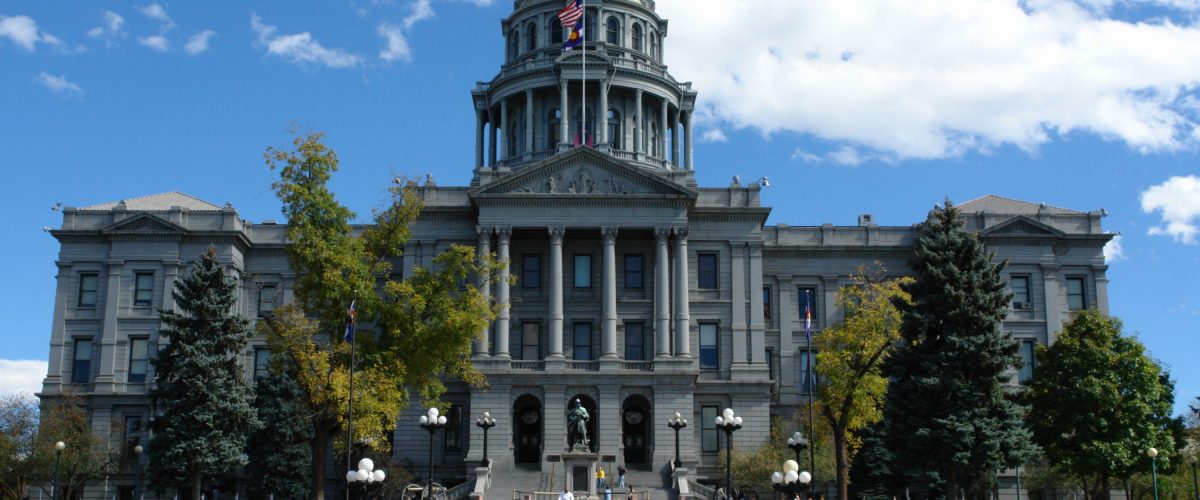
Business School forum focuses on energy sustainability in historic buildings
DENVER — A Wyoming lawmaker has a different outlook on alternative energy systems thanks to what he learned at the CU Denver Business School’s “Achieving High Performance in Historic Buildings” forum Wednesday at the Colorado State Capitol.
Basking in a retrofitted air-conditioning system inside the old Supreme Court Chambers, courtesy of the capitol’s new geothermal technology, didn’t hurt either.
“I didn’t think it would be cost-effective to pursue geothermal,” said James Byrd, a Wyoming House representative and minority whip. “What I discovered here opened my eyes and I realized I had been looking at it from a myopic point of view.”
Discussing the benefits of alternative energy systems, including the capitol’s geothermal heat-exchange loop, was the idea behind the session presented by the Business School’s Managing for Sustainability program. About 100 business and government representatives and other interested parties attended.
The symposium featured Gov. John Hickenlooper, U.S. Sen. Mark Udall, Mike Hillesheim of the National Renewable Energy Laboratory and Lance Shepherd of the Colorado Department of Personnel & Administration (DPA). The event was sponsored by Chevron Energy Solutions, which develops and builds sustainable energy projects that increase energy and reduce costs, including the capitol project. Matt Rush, regional manager of Chevron Energy Solutions and graduate of the CU Denver Business School MBA program, filled out the panel. Leading the forum was Chevron’s Alex Parrillo.
Business School Dean Sueann Ambron gave introductory remarks, highlighting the Business School’s stature as the largest graduate school of business in the Rocky Mountain region and ninth largest in the nation. Dr. Ken Bettenhausen, co-chair of the Managing for Sustainability program, explained that the program has filled an important need since being launched five years ago. He noted that in addition to the Managing for Sustainability program, the Business School offers a breadth of electives related to sustainable business.
“When our students get to a company … they become embedded in the organization, show they are value-added contributors and show that they know how to connect and relate sustainability to their company’s business,” Bettenhausen said.
Event speakers noted that Colorado is already a leader in alternative energy and aims to become even greener. The Colorado Capitol is the first LEED-certified state capitol in the nation and the first facility to receive the LEED for Existing Buidings certification.
“If you look at the different energy sources that are going to improve our ability to clean our air and still control costs in delivering energy, we are uniquely situated in ways other places aren’t,” Hickenlooper said.
Udall, who spoke via a video message, said, “When you combine (geothermal) with our wind and solar resources, this innovation sends a clear message: Colorado can lead the world in clean energy production.”
Since the Colorado DPA launched an energy efficiency upgrade program at the Colorado Capitol Complex in 2003, the financial and environmental benefits include:
- Zero cost to taxpayers.
- More than $8 million in utility savings to date.
- Offset of more than 91.2 million pounds of carbon emissions.
“We are in arguably the most energy efficient state capitol in the United States,” Parrillo said. “The cool air you feel … was cooled from 65-degree water 900 feet below us.”
Rush, also of Chevron Energy Solutions, explained how Energy Performance Contracting (EPC) works. Basically, it transfers the risk of project performance to a third-party private entity, which is Chevron in the Capitol Complex project. “EPC is a way to generate capital from future (utility) savings,” he said. “We put in energy efficient and innovative equipment that is inherently going to use less energy because it’s efficient.”
Hickenlooper listed off several Colorado assets: public-private funding mechanisms, array of clean energy resources and innovative university programs. Combined, he said, they make the state unmatched as a place for forward-thinking businesses to locate.
“Colorado is really one of the few states where we can say we are defined by our future and not our past,” he said. “And that’s a great thing about CU Denver. In every respect … they are trying to do things in a new way.”


